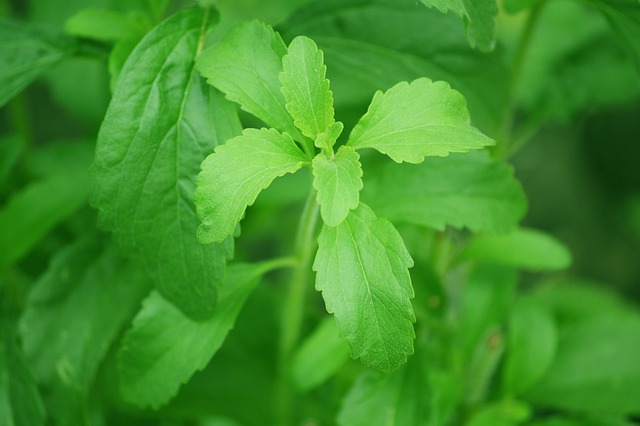Stevia is a natural sweetener that is gaining popularity with health-conscious individuals all over the world.
In recent years, its demand has been rising as a sugar substitute due to its low calorie, low glycemic index and natural source of sweetness. It is now the preferred choice for many health-conscious individuals who are looking for a healthier alternative to sugar.
Introduction
For those who are unfamiliar with stevia, it is a 100% natural sweetener that is derived from the stevia rebaudiana plant. It has been used as a natural sweetener for centuries in some parts of the world and has become popular in many countries in the last few decades. It is now a common ingredient in many food and beverage products.
In its natural form, stevia is 200-300 times sweeter than sugar, making it a great choice for those looking to reduce their sugar intake. It also has a much lower calorie content than sugar, making it a suitable option for those who are watching their weight. Additionally, it has a low glycemic index, which means it does not cause a significant spike in blood sugar levels. This makes it a great choice for diabetics and those who are sensitive to changes in their blood sugar levels.
Another benefit of stevia is its natural source of sweetness, as it is derived from a plant. Unlike sugar and other artificial sweeteners, it does not contain any added preservatives or chemicals. This means it is a much healthier alternative to sugar and other artificial sweeteners. Furthermore, it is also vegan-friendly and does not contain any animal-derived products.
Overall, stevia is becoming a popular sugar substitute due to its wide range of health benefits. From its low calorie content and natural source of sweetness to its low glycemic index and no effect on blood sugar levels, it is the perfect sugar substitute for health conscious individuals. In the following sections, we will explore the different forms of stevia and provide useful tips on how to use it to replace sugar in cooking and baking.
Health Benefits
Stevia is an increasingly popular sugar substitute that is gaining attention for its potential health benefits. While it has been used for centuries in traditional medicine and cuisine, stevia has only recently gained prominence as a natural sweetener. When used as a sugar substitute, stevia can provide a wide range of health benefits.
First and foremost, stevia is remarkably low in calories. In fact, it has no calories at all, which makes it an ideal sweetener for those looking to lose weight. Moreover, it has a natural sweetness from steviol glycosides that can help satisfy cravings without added calories.
In addition, stevia has a low glycemic index, meaning it won’t cause a spike in blood sugar like other sugary foods and drinks. This is especially beneficial for individuals with diabetes, who must be wary of their blood sugar levels. Furthermore, stevia has no effect on blood sugar levels, making it a safe and healthy alternative to sugar.
Stevia comes in different forms, including powder, liquid, and tablets. The powder form is the most common, as it can be added directly to food and drinks. The liquid form is ideal for adding sweetness to beverages, while the tablets can be used in baking and cooking recipes that call for sugar.
When it comes to using stevia, it’s important to remember that it measures differently than regular sugar. Generally, it is recommended to use about half as much stevia as regular sugar. Additionally, it can be combined with other sweeteners to achieve the desired level of sweetness.
Finally, it’s important to note that stevia can cause some side effects, such as increased urination. Additionally, those who are allergic to plants in the Asteraceae family may experience an allergic reaction to stevia. Nonetheless, the potential benefits of stevia far outweigh the risks, making it an ideal sugar substitute for health-conscious individuals.
In conclusion, stevia offers a wide range of health benefits. Its low calorie content and natural sweetness make it an ideal sugar substitute, and its low glycemic index means it won’t cause a spike in blood sugar. Furthermore, its different forms make it simple to use in baking and cooking. Finally, its potential side effects are mild and can be avoided with proper usage. For these reasons, stevia is the perfect sugar substitute for health-conscious individuals.
Different Forms of Stevia
Stevia has become increasingly popular as a sugar substitute due to its wide range of health benefits. It has been used as a sweetener for centuries, but has gained even more popularity as an alternative to sugar and artificial sweeteners. Stevia is available in a variety of forms, making it easy to incorporate into your diet.
In its most natural form, stevia is a powdery substance derived from the leaves of the stevia plant. This powder is available in health food stores and online. It has a slightly bitter taste, but is much sweeter than sugar. It is best used as a sweetener for beverages, such as coffee and tea, as it does not dissolve as easily as other forms of stevia.
Liquid forms of stevia are also available. The liquid form is much sweeter than the powder form and can be used in place of sugar in baking and other recipes. This form of stevia is made by extracting the sweetness from the stevia leaves and then diluting it with water. It is available in a variety of different flavors, including vanilla, lemon, and chocolate.
Stevia is also available in tablet form. These tablets are made from stevia extract and can be used to sweeten beverages and other recipes. They are similar to sugar cubes in that they can be measured out according to the desired sweetness level. The tablets are also convenient for use while on the go.
In addition to the powder, liquid, and tablet forms, stevia extract can also be purchased. This extract is made by removing the sweetness from the stevia leaves and then concentrated into a liquid. The extract is much sweeter than the powder or liquid forms, and a little bit goes a long way. It can be used in place of sugar in baking and other recipes.
No matter which form of stevia you choose, it is important to remember that it is much sweeter than sugar. Therefore, it is important to measure it out according to the recipe or desired sweetness level. It is also important to combine it with other sweeteners if you are using it in baking in order to achieve the desired sweetness level. Additionally, you can use stevia to replace sugar in recipes, but it is important to note that it may affect the texture of the baked goods.
Usage Tips
Stevia is most commonly used as a sugar substitute in beverages, but it has a wide range of uses. The following are some tips for using stevia as a sugar substitute.
Measurement Equivalent to Sugar
When substituting stevia for sugar, it is important to remember that it is much sweeter than sugar. The usual rule of thumb is to use about 1/4 to 1/3 of what you would use if using sugar. For example, if the recipe calls for one cup of sugar, use 1/4 cup of stevia.
Combining It With Other Sweeteners
Stevia can be combined with other sweeteners to create a more balanced flavor. For example, if you are using stevia to sweeten coffee, combine it with a natural sweetener such as honey or maple syrup. This will create a more balanced flavor and prevent the bitterness that can come from using stevia alone.
Using It To Replace Sugar In Baking
Stevia can be used in baking recipes as a healthier alternative to sugar. When using it in baking, it is important to remember that it does not provide the same texture or volume that sugar does. To compensate for this, you can add 1/2 teaspoon of baking soda for every cup of stevia. This will help to make up for the lack of volume and texture that sugar provides.
Using it in Syrup Form
Stevia can also be used in syrup form. This can be a great alternative to sugar in recipes that call for syrup. When using it in syrup form, it is important to remember that it does not dissolve as easily as sugar does. To help with this, heat the syrup slightly before adding it to a recipe. This will help the syrup to dissolve more easily.
Using it as a Sugar Substitute in Beverages
Stevia can be used as a sugar substitute in beverages as well. When using it in beverages, it is important to remember to start with a small amount and taste test before adding more. This will help you to determine the desired sweetness level and prevent the drink from becoming too sweet.
Using it in Smoothies
Stevia can be used in smoothies to replace sugar and provide a healthier alternative. When using it in smoothies, it is important to remember to start with a small amount and taste test before adding more. This will help you to determine the desired sweetness level and prevent the smoothie from becoming too sweet.
In conclusion, stevia is a great alternative to sugar for those looking for a healthier option. It has a wide range of uses and can be used to replace sugar in beverages, baking, and even syrup. By following the tips outlined above, you can ensure that you are getting the most out of your stevia and that your creations are perfectly sweetened.
Potential Side Effects
Although stevia is generally considered safe to consume, there are potential side effects that should be taken into account. For example, some research suggests that stevia may lead to increased urination in some people. In a study involving both animals and humans, it was found that stevia stimulated the bladder when consumed in large amounts, resulting in a greater need to urinate. However, this effect was not seen when stevia was consumed in small amounts.
It has been suggested that stevia may cause allergic reactions in some people, including rashes, hives, and swelling of the eyelids and lips. Those with allergies to ragweed may be more prone to this reaction. It is always wise to consult a healthcare provider if you experience any adverse reactions when consuming stevia.
A few animal studies have suggested that high doses of stevia may have adverse effects on fertility. However, more research is needed to determine if this is true in humans.
There is some evidence to suggest that stevia may interact with certain medications, including antibiotics and antifungals. Therefore, it is important to consult a healthcare provider before consuming stevia if you are on any medications.
It is also important to be aware that not all forms of stevia are equally healthy. While many products are made with pure stevia extract, some products contain additives such as sugar alcohols and other sweeteners. Therefore, it is important to read the ingredient list before purchasing any stevia-based products.
In summary, stevia is generally considered safe for most people, but there are some potential side effects to be aware of. As with any food or supplement, it is important to consult a healthcare provider before using it, especially if you are pregnant, nursing, or taking any medications. In addition, be sure to read the ingredient list before purchasing any stevia-based products to ensure they are made with pure stevia extract and do not contain any additives.

